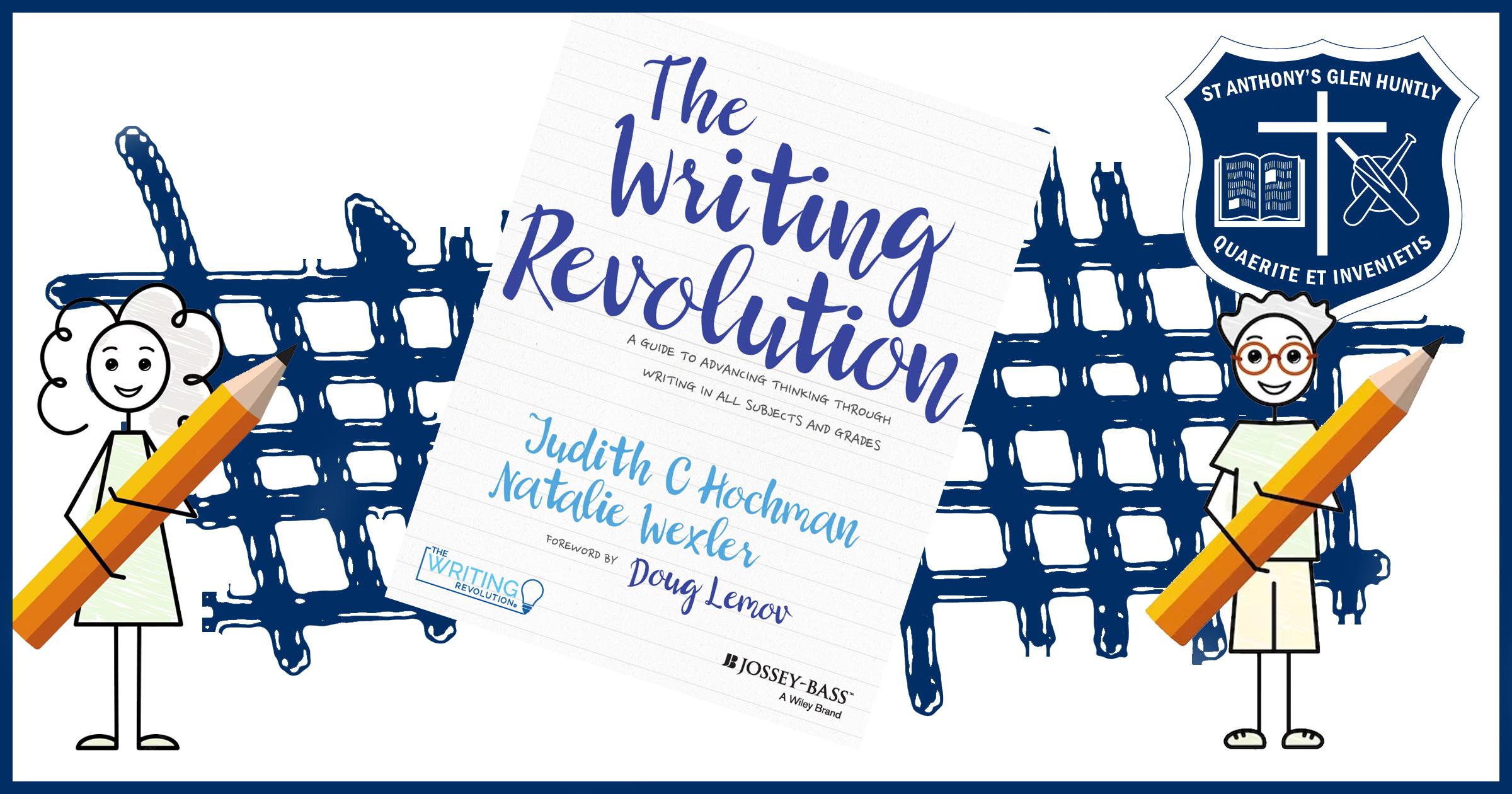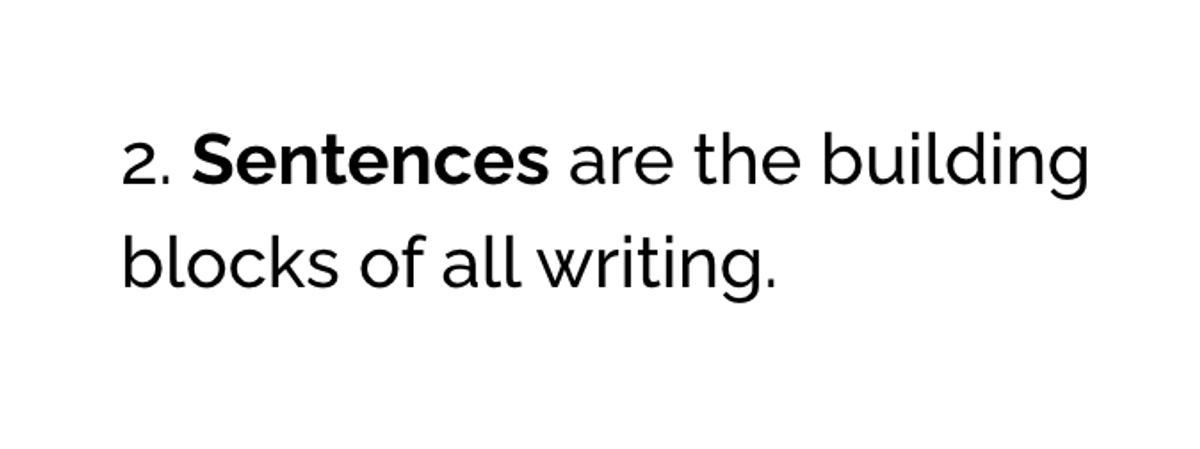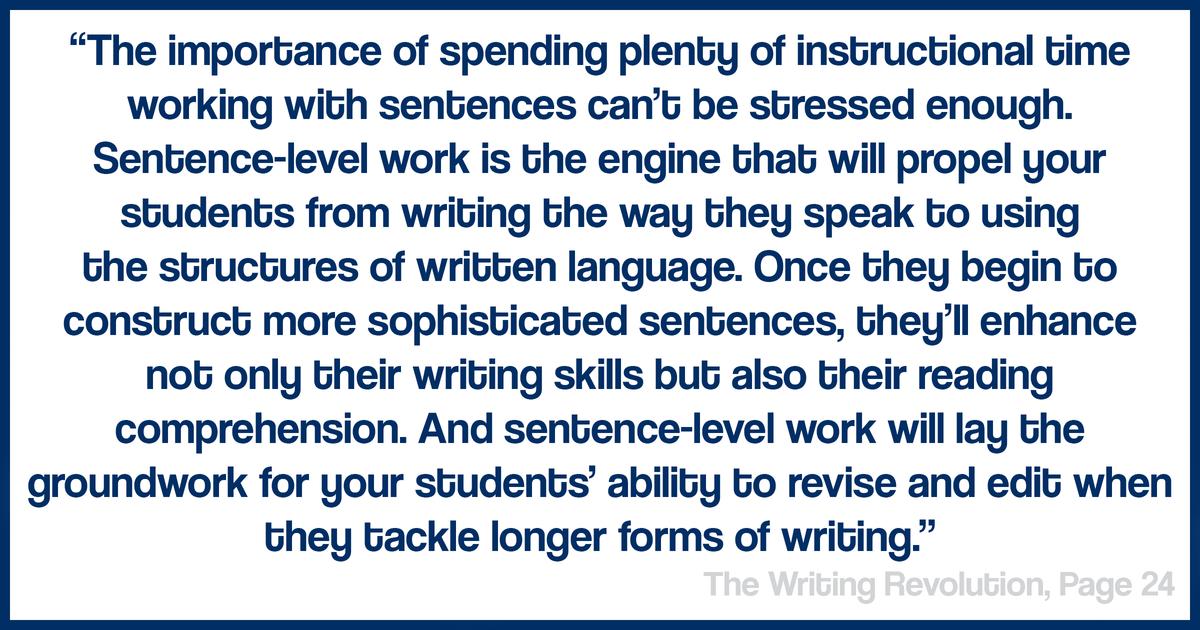English

The Basic Building Blocks of Writing
At St Anthony's The Writing Revolution is a resource that is used to assist with the planning and structure of writing lessons across the school. It employs the Hochman Method, which is a series of principles in an approach to the teaching of writing. Each of these principles are supported by current Educational research. Further to this the program is designed in a way that it can be embedded in any curriculum area, not just English. This means strategies from the Writing Revolution might be practiced in Integrated, Religion and even Mathematics lessons.
For this article we are going to unpack one of the six principles outlined in the Writing Revolution and one that has recently been reflected on in staff meetings and planning sessions.
The best way to explain this principle is an excerpt from 'The Writing Revolution' itself:
When we think about this, it makes a lot of sense! Every piece of our writing starts with one sentence.
'The Writing Revolution' asks teachers to reflect on the scaffolding nature of education. It correctly points out that we cannot expect students to write detailed stories or reports without first providing them the skills to produce interesting, varied and structurally correct sentences. For this reason the building block comparison is extremely sound.
Levelled, relevant and achievable goals
Like any quality educational program the Writing Revolution works in a sequential fashion. The goals it sets are levelled so they are appropriate for each year level in our school and then build as our students get older. Please see a few examples of learning goals in the text for different year levels below:
The system understands our younger students are still developing their fine motor skills and practicing the actual skills involved in writing with a pencil, so also includes oral components to practice working on sentences.
In Year One our students may be presented with the beginning of a sentence and asked to brainstorm and share grammatically correct ways to finish it. For example,
- I was running late because...
-Her day was busy because...
-Tommy wanted to go to the park but...
Students begin practicing finishing sentences with ideas which link to the example that is given to them.
Students begin to think about the variety of sentences and how this makes a text interesting and engaging for the reader. Combining sentences is a skill which practices taking a set of sentences which may each contain some information and seeing if they can neatly fit into one descriptive sentence.
For example:
Friday it was raining.
Saturday it was cloudy.
Sunday the sun started to shine.
Might become something such as
The weather on the weekend kept changing, Friday it rained, Saturday it was still cloudy but by Sunday the sun had come out!
As we jump forward through our year levels, students are supported in reflecting on the flow of their writing, and how each of their sentences should build from the one before it. This should ultimately lead to writing pieces which are easy for a reader to process and don't come across as a set of individual sentences on a page.
This might look like:
Earthquakes are a dangerous natural disaster. For example, the shaking of the ground can cause buildings to be damaged or fall over.
Another example might be:
The planet Jupiter is a Gas Giant. This means that a person could not step onto Jupiter, they would just float through the gas!
Building from the Ground Up
Again this is just a taste of one of the six principles which can be found within the Writing Revolution, with instructions and advice looking slightly different across the school depending on the age of our students.
Students continue to practice these skills, then importantly keep building on them. Producing interesting sentences becomes an achievable skill which builds to producing whole paragraphs which builds to creating entire pieces of writing.
We feel this is another example of the hard work of our staff in our classrooms, ensuring our students are challenged in their learning but also supported to grow and develop their skills each day.
Tim O'Mahoney
English Leader
tomahoney@santglen.catholic.edu.au





